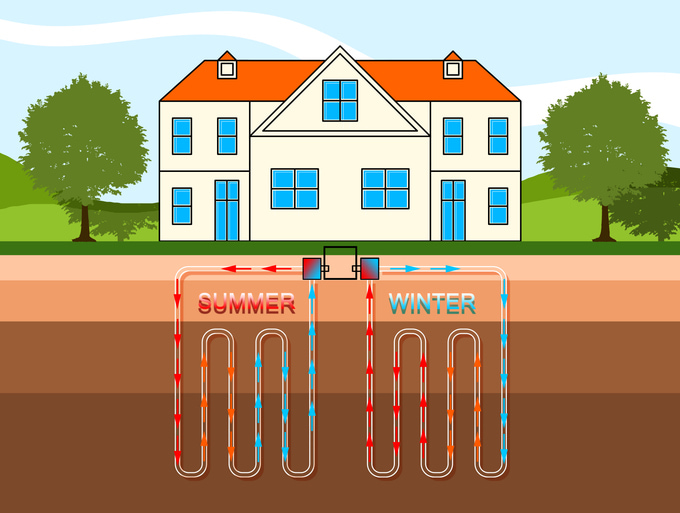In Charleston, SC, the only thing rising faster than summer temperatures is the electric bill. As inflation drives up utility costs and energy demand soars during record-breaking heat waves, many Lowcountry homeowners are asking one crucial question: How can I save money on cooling? With traditional HVAC systems struggling to keep up and power bills hitting hundreds of dollars monthly, it’s clear that conventional solutions aren’t enough. But there’s one answer that’s quietly transforming how homes stay cool in Charleston’s sweltering summers: geothermal cooling. Here’s why it could be your smartest long-term investment:
Why Traditional Air Conditioning Costs More Every Summer
In 2024, the average residential energy bill in South Carolina rose over 11%, according to the U.S. Energy Information Administration. Standard air conditioning systems become less efficient as they age and rely heavily on the power grid, which is strained during peak summer demand. The result? Longer run times, higher cooling costs, and more wear and tear on your system. With inflation tightening budgets, those monthly cooling bills become harder to swallow.
How Geothermal Cooling Works
Unlike traditional systems that rely on hot outside air to release heat, geothermal systems use the stable underground temperature—typically around 55°F throughout the year—to cool your home. A series of underground pipes called a loop system, transfers heat to and from your house via a ground-source heat pump. This process requires far less energy, making it dramatically more efficient.
Save Up to 70% On Cooling Costs
The U.S. Department of Energy reports that geothermal heat pumps can reduce cooling costs by up to 70%. That means a $300 summer cooling bill could drop to $90. Charleston’s hot, humid climate makes geothermal cooling systems especially valuable because they maintain performance without battling extreme outdoor air temperatures. Over time, these savings can add up to tens of thousands of dollars.
Longer Lifespan, Lower Geothermal Cooling Maintenance
Traditional HVAC systems typically last 10–15 years, while geothermal cooling systems can last 25 years indoors and more than 50 years for the ground loop. Fewer moving parts and protection from weather extremes mean less maintenance and fewer repairs. In a climate like Charleston’s, where systems run hard from May to October, this reliability can be a game-changer.
Federal Tax Credits and Local Incentives
Thanks to the Inflation Reduction Act, homeowners installing geothermal cooling systems in 2024–2032 can claim a 30% federal tax credit on the total system cost. South Carolina also offers local energy efficiency rebates. These financial incentives can reduce upfront costs significantly and help pay off the investment much faster.
Increase Your Home’s Value
Home buyers in Charleston, SC, are increasingly energy-conscious. Installing a geothermal cooling system can raise your home’s resale value by offering long-term cost savings, comfort and eco-friendly operation. A 2024 study by the National Association of Realtors found that green-certified homes sold for up to 9% more than traditional homes. Investing in geothermal cooling not only saves you money now; it pays you back later.
Start Saving Now, Not Later
Geothermal installation is an upfront investment, but with rising utility rates, every season you delay is money lost. The sooner you switch, the faster you start saving. Don’t wait until the next heatwave to make the change. Start planning your geothermal HVAC upgrade today and take control of your summer energy bills for good.
Geothermal cooling systems also have heating capabilities, making them a great year-round HVAC option. Contact the HVAC pros at Berkeley Heating & Air Conditioning to learn more about geothermal cooling and heating. We’re the largest geothermal HVAC dealer in South Carolina, and we look forward to helping you save energy and money while maximizing home comfort for your family and friends.
Image provided by iStock


